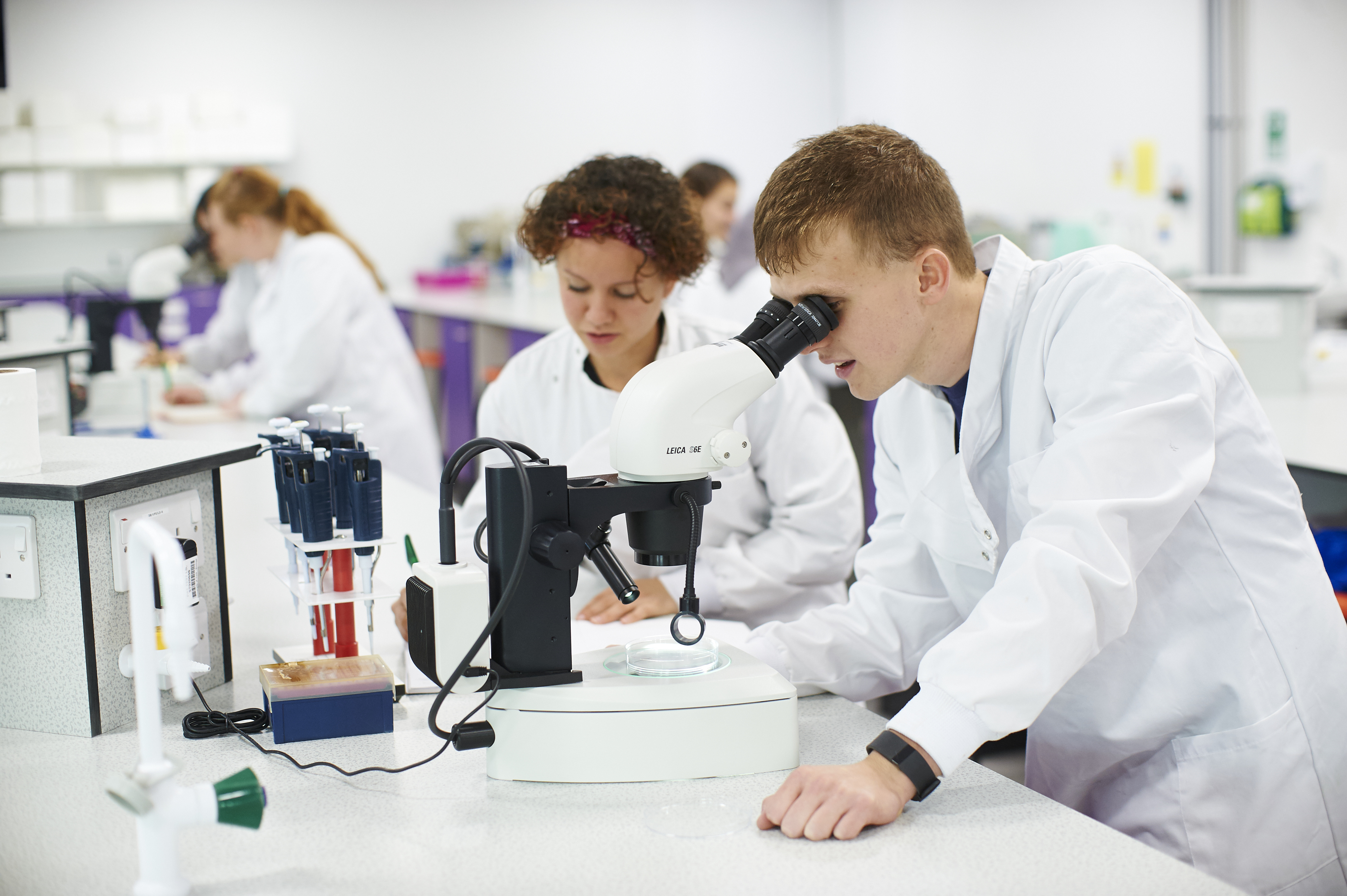
“Biology is the study of the complex things in the Universe.” – Richard Dawkins
Established on the principles of excellence, equality and accessible opportunities, the University of York has become a world-leading university, and an academic powerhouse for teaching and research. As a member of the elite Russell Group of higher education providers, York is dedicated to the development of life-saving discoveries, paving the way to brand-new technologies that tackle some of the world’s most pressing issues.
Set just a few minutes’ walk from York’s historic City Centre, the institution’s state-of-the-art Heslington Campus is home to nine colleges and most of its departments, with the remainder delivering world-class courses from the notable King’s Manor site.
A respected facet of York’s Faculty of Sciences, the Department of Biology is a stand-out feature of the renowned Heslington plot, consistently ranking in the Top 6 places for UK Biological Studies in The Guardian University Guide, the Complete University Guide and The Telegraph Education. Known as a dominant and interdisciplinary force in biologically-focused education, the department holds major influence over environmental policy, industry and health in the UK and worldwide.

Image courtesy of the University of York ©2016 John Houlihan / witness.co.uk
“We welcome staff and students from around the world; celebrating excellence, breadth and diversity across the spectrum of modern biology, from ecology to biomedicine,” says Professor Ian Graham, current Head of the Department. “We are proud of our status as one of the UK’s leading university biological sciences departments, as measured by our high rankings for both research and teaching.”
The Department’s postgraduate provisions stand as a further feather in the cap of the York University brand, delivering distinguished research and teaching in everything from field ecology, to complex protein structure and beyond. Adding further scope to its extensive portfolio, the University is integrating three new, innovative Masters programmes, furthering its status as a pioneer of biological education.
MSc in Industrial Biotechnology
The taught Masters programme in Industrial Biotechnology serves as ideal preparation for research, as well as industry-based biotechnology exploration and development. Here, students gain in-depth research experience and interdisciplinary training in cutting-edge biomolecular and biochemical techniques. Taught modules include:
- Industrial Biotechnology
- Data Analysis and Programming in the Biosciences
- Research, Professional and Team Skills
Elective modules include:
- Biocatalysis
- Cell and Tissue Engineering
- Bioremediation
Participants of this programme also pursue a module of independent study, carried out as a placement within the University or via an external organisation.

Image courtesy of the University of York ©2009 John Houlihan / witness.co.uk
“York is a great place to carry out a research degree,” says Samantha, former York Biology student. “The Biology Department [is] a friendly and supportive environment: there is always someone on-hand to help.”
On top of instilling invaluable skills in data analysis, programming and general professionalism, this course helps students appreciate the powerful role of Science in industry, from commerce, to IP issues and ethics, producing graduates who are employable on a global scale.
MSc in Molecular Medicine
York’s MSc in Molecular Medicine covers a broad discipline relating to the study of the molecular mechanisms of disease, as well as their application in developing clinical therapies. Standing at the helm of healthcare research in personalised medicine, stem cells and the prospect of editing genes, this is no doubt an exciting time to delve into the field of biomedical science at York. The institution’s new programme in Molecular Medicine provides comprehensive grounding within the contemporary field, and institution’s considerable expertise in cancer research, immunology, microbiology, neuroscience and parasitology helps propel students straight to the top. Taught modules include:
- Molecular Basis of Disease
- Data Analysis and Programming in the Biosciences
- Research, Professional and Team Skills
Elective modules include:
- Cancer
- Neuroscience
- Cell and Tissue Engineering
- Microbiology
After receiving training in core lab-based techniques and experimental design, much like the Industrial Biotechnology programme, students here undertake an Independent Study Module with the supervision of a biomedical researcher from the Department, or as an external placement. This programme is the ideal preparatory route for a thriving career in research, equipping graduates with sought-after critical thinking, data interpretation, statistics and programming skills that prove invaluable in a competitive employment market.
MSc in Biodiversity, Ecology and Ecosystems
Coming soon for York’s fresh 2018 graduate intake, the MSc in Biodiversity Ecology and Ecosystems will enable students to appreciate how the biodiversity within and around agricultural systems can be both measured and managed, while helping them understand the effects of this on ecosystem functions such as carbon storage, flooding, nutrient cycling, crop yields and other land management issues. Here, students will learn to respect the biological systems that underpin agricultural productivity, learning to apply this to decision-making processes at the farm and landscape scale. They will learn to grasp modern crop-breeding processes and how these are used to incorporate genetic diversity, cutting-edge research on soil, climate and environmental research, and how these research areas can each influence productivity and ecosystem services.

Image courtesy of the University of York ©2016 John Houlihan / witness.co.uk
Exploring topics of great interest to them, students also conduct an independent case report detailing a specific problem, noting how this problem can be addressed, as well as the scope for future developments in the area. Instilling extensive evaluative and data-analysis techniques, graduates of this programme leave readily-equipped to succeed in scientific research, or professional service roles.
Leading-edge learning environments
In September 2016, the Department launched a brand-new building for biology-based teaching and learning, specially-designed to promote collaboration and inspire confident, adaptable and independent students. Partly funded by the prestigious HEFCE STEM award, the building offer’s an innovative focus for York Biosciences students. Incorporating a new student reception and associated space for administrative support, the building will also boast a grand Flexible Learning Space, computer lab, two large-scale laboratories, a Tissue Culture Lab, a Plant and Ecology Lab and various office spaces. An additional Creative Learning Lounge and Think Tank on the top floor will encourage creative, collaborative learning, allowing York’s biology students to progress in ways they never could have before.
As one of the UK’s leading providers of specialised biological education, York’s qualified graduates are in high-demand in the professional science field. And with so many exciting developments in store this year and beyond, there’s never been a better time to pursue biological studies at York.
Follow the University of York on Facebook, Twitter and YouTube
Liked this? Then you’ll love these…
The phenomenal growth of Life Sciences in emerging markets
6 UK Life Science schools at the forefront of today’s most pressing health issues







